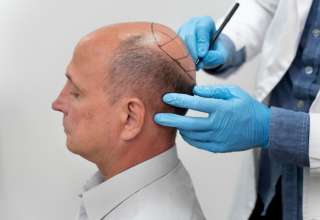How often does someone cry over something trivial or even out of anger? The answer is quite often. Crying is one way that people release emotional stress. It can be a natural and helpful response to difficult times. If you’ve ever cried because of a bad breakup, then you know how painful it can be.
There are several reasons why people cry. Sometimes they are overwhelmed by emotions, such as sadness, fear, frustration, etc. Other times, they might be experiencing pain from an injury or illness. In addition, some people experience crying spells due to hormonal changes during puberty or pregnancy.
There are ways to deal with these situations. For example, you can try to distract yourself from negative thoughts by focusing on positive ones. Or you can talk to friends or family members who care about you.
Types of headaches from crying
Depending on the length of time and the severity of crying, you could experience different types of headaches. While some people report getting tension headaches, others say they get migraines. There are even some people who suffer from cluster headaches, which are a type of headache that comes in groups. For example, if you cry for a long time without taking a break, you might get a headache from the tension in your facial muscles.
Tension headaches–
Tension headaches are the most common type of headache, and they can be brought on by crying. When you cry, your whole body tenses up, and the muscles in your head and neck constrict, which can cause a throbbing sensation.
Sinus headaches–
When you cry, you might notice that your sinuses get affected. This is because the act of crying can put pressure on them and cause them to swell up. If you find that this is happening to you, it’s important to take a break from crying and give your sinuses a chance to recover.
While it’s possible that having a migraine could be related to sinus pain caused by crying, sinus infection headaches are not actually connected, as explained by Thomas Berk, MD. Dr. Berk is a neurologist, headache specialist, and the Medical Director of Neura Health.
Migraine headaches–
Migraine is a headache condition that can be set off by light and sound. According to Berk, it often comes with nausea and is caused by the production of chemicals that cause inflammation in the brain.
If you tend to get migraines, you may be more likely to experience one following a crying spell. That’s because the act of crying can cause a chain reaction that may ultimately lead to a headache. When you cry, your body releases certain hormones. These hormones can then trigger other processes, like widening of your blood vessels, which can cause headaches.
Crying can make you feel better
We’ve all had a good cry, and it usually makes us feel a bit better. In fact, research has shown that crying can be beneficial for our physical and mental health. When we cry, our brains release neurochemical substances that can help us to relax and feel supported. Crying also allows us to share our feelings with others, which can create a stronger bond between us.

Home Remedies to Get Rid of Headache After Crying
Crying is a great way to relieve stress and anxiety, and it can even help with sadness and fear. However, it can also lead to a pounding headache. Here are some ways to prevent a headache after crying.
1. Rest if You Can–
If you’re feeling pain in your head, one thing you can try is to sleep it off. Often, when you wake up after getting some rest, the pain will be gone. You might even feel refreshed from sleep.
2. Drinking Water–
It’s important to stay hydrated after a crying spell. Drinking water will help ease that pounding feeling that comes from dehydration. Avoid alcohol, though, as it will only make you feel worse.
3. Analgesic Medicine–
If you’re experiencing headaches, it’s generally recommended that you take over-the-counter medications, such as acetaminophen or ibuprofen. However, it’s important to note that if you find yourself crying more often than usual, it could be a sign of something more serious, like depression. In this case, it’s best to seek professional help rather than simply popping a pill.
4. Head Massage–
There are a few things you can do to ease stress and relieve headaches. Sometimes a firm massage on the temples helps. You can also get in the shower and shampoo your hair, using your fingers to massage your scalp. This can be a great way to get some relief.
5. Meditation–
Eat well, and try to find a quiet space where you can focus on your breathing. If you’re feeling overwhelmed, it might help to close your eyes and take some deep breaths. This can help ease tension headaches and give you a chance to clear your mind.
How to Help A Headache After Crying
There are some things you can do to ease the pain if you get a headache after crying. Applying heat, massaging the area, and stretching may help with tension headaches that come after crying, and over-the-counter pain medication (such as NSAIDs, naproxen, Excedrin, etc) can be effective for occasional use.
Above all, take care of your basic bodily needs. “Drink water, exercise, sleep, eat well, and have a positive outlook – these are all important things to take care of yourself! Sometimes when you’re feeling down it can be tough to get moving, but small things like splashing cold water on your face or going for a short walk can really help.
What happens if you Cry too Much?
Crying for an extended period of time can lead to a number of unpleasant side effects, including headaches, swollen and irritated eyes, sinus congestion, and neck and jaw pain. The neck and jaw pain is often caused by muscle tension and stiffness from clenching the neck and face muscles for an extended period. If you find yourself crying frequently, it’s important to seek help from a doctor or therapist to explore the underlying cause and find ways to cope.
Can Crying Cause Migraines?
Tension headaches that feel like a tight band of pressure around your forehead, temples, and back of the head are often brought on by crying.
If you’re experiencing this type of headache, know that you’re not alone and that there are things you can do to feel better. Take some time for yourself to relax and de-stress. Drink plenty of fluids, especially water. And if the pain persists, over-the-counter pain relievers like ibuprofen or acetaminophen can help.
It’s possible to get a migraine from crying, especially if the crying is related to negative emotions. Stress is one of the largest triggers of migraines.
Migraines are frequently more intense than tension headaches and include throbbing pain, visual auras, sensitivity to light, smells, and noise, and nausea or vomiting. Migraines may be focused around one or both eyes.
Why do we feel sleepy after crying?
When someone cries, their heart rate goes up and they start breathing more slowly. The more they cry, the greater the hyperventilation, which means less oxygen gets to their brain and they can feel sleepy.










